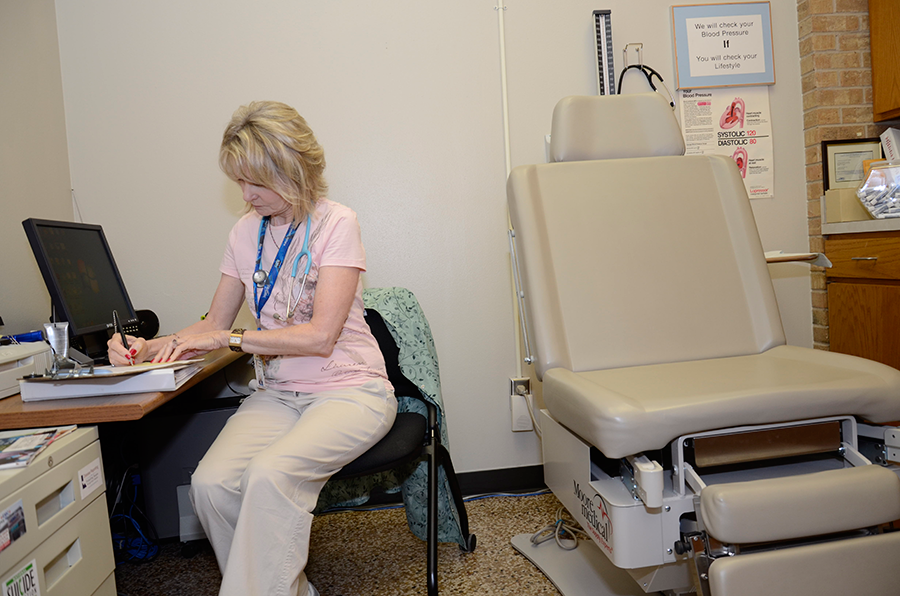By Z. Poe Doyle/reporter
Students with difficulties managing their many responsibilities were given insight on how to make and keep a schedule at the Sept. 13 Managing Your Time, Balancing Multiple Roles seminar on NE Campus.
Andrew Hollinger, NE professor of history, gave students not only the tools to do this but also tips to prepare them for future challenges.
“Your success in community college is the biggest indication of how far you are going to go,” Hollinger said.
If students do exceptionally well in college, he said, then it is likely what follows will be equally as bright. The student needs to aim for the top, he said, rather than hoping merely to pass.
“Face it, you could skid through this place rather easily, but in the world to come, is a ‘C’ good enough?” he asked. “I will tell you, in the world to come, a ‘B’ is not good enough.”
Hollinger went on to say that to reach the top, one must do whatever it takes with the resources available and without regard to what others have or can do.
“Don’t merely use the resources available to you — exploit them, take advantage of them,” he said.
As for studying, Hollinger said that all-night cram sessions are mostly futile and that sufficient sleep is essential before taking a test.
Hollinger told the audience to “take advantage of any person, place or thing you can for personal gain. It’s a good thing.”
His meaning behind this statement, he said, was for students to use everything at their disposal to get ahead, including social networking websites, friends, family, employers and even classmates.
Hollinger’s guide to managing time is based on five fundamental parts of a student’s daily life: work, school, family, sleep and exercise.
“Be ruthlessly honest with yourself when making the schedule,” he said. “It’s important not to forget about your sleep, eating or travel time.”
Hollinger described how easy it is to lose track of time when encountering the multiple interruptions present in modern life.
“People today are addicted to screens,” he said. “They’re everywhere, each serving as an interruption to what you’re doing.”
According to Hollinger, any schedule that can potentially aid a student must manage and prioritize these distractions.
Hollinger held the audience’s attention from start to finish through examples pulled from his own life as well as a few anecdotes to lighten the mood.
His presentation was one of many Student Success seminars sponsored by student activities. The next will be Positive Self-Esteem and the Road to Success on Oct. 2. For more information, contact student activities at 817-515-6688.



























